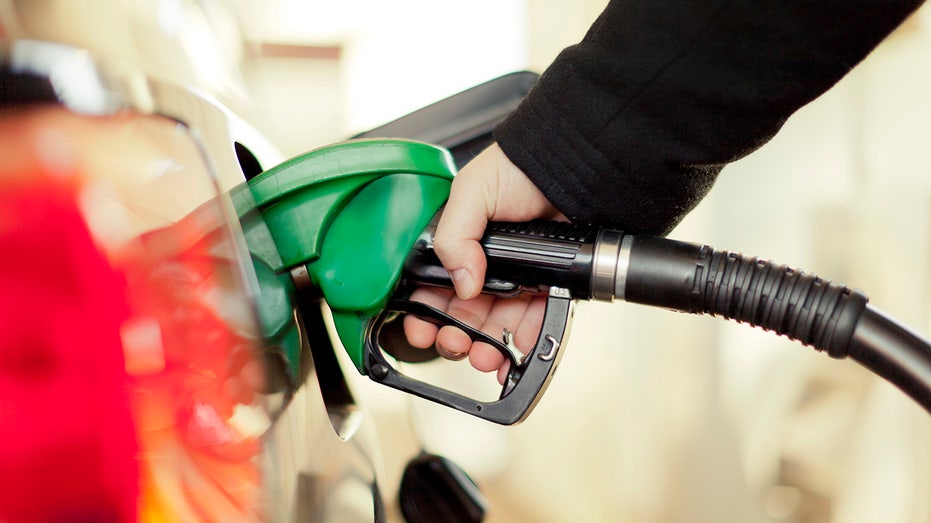Gas prices: What you can do to spend less at the pump
The national average for gas prices hit $4.33 per gallon on Friday, according to AAA
Biden admin ‘blatant disregard’ for what the average American is going through: Rick Perry
Former Texas Governor and energy secretary Rick Perry weighs in on the Biden administration’s failures and Biden’s energy policy.
Gas prices continue to soar, with the national average hitting $4.33 per gallon on Friday. Average prices are ranging from as low as $3.82 per gallon to as high as $5.72 per gallon, according to AAA.
FOX Business provides a roundup of best practices for consumers looking to save money on gas while driving and at the pump.
GAS PRICES SURPASS $4, LEADING AMERICANS TO MAKE LIFESTYLE CHANGES: AAA
1. Plan trips ahead of time
The best way to save on gas is to plan your trips ahead of time in order to minimize unnecessary turnarounds and backtracking. Drivers should avoid peak traffic times and if possible go to "one-stop shops" where you can do multiple tasks.
2. Buy gas on Monday
According to GasBuddy, which operates apps and websites for finding real-time fuel prices at more than 140,000 gas stations, the best day to buy gas for maximum savings is Monday, followed by Sunday and Friday. While the weekend previously held the title for the most expensive prices, Thursday and Wednesday are now the most expensive days to fill up.
OIL ANALYST WARNS GAS PRICES WILL CONTINUE TO RISE AMID ‘VERY UGLY’ INFLATION, FUEL SHORTAGE LOOMING
3. Don't buy premium fuel unless your car requires it
A 2018 GasBuddy survey found that about 8% of respondents fill up their tanks with premium fuel. However, GasBuddy notes that premium gas can cost 60 cents per gallon more than regular octane gas. Previous research by AAA has also found no added benefit if your car does not require it.

The best day to buy gas for maximum savings is Monday, followed by Sunday and Friday, according to GasBuddy. (iStock / iStock)
4. Reduce highway driving speeds
According to AAA, fuel economy generally peaks at around 50 miles per hour on most cars and drops off as speeds increase. The organization estimates that reducing highway speeds by 5 to 10 miles per hour can increase fuel economy by as much as 14%.
In addition, avoiding "jackrabbit" starts and hard acceleration can reduce fuel consumption. Drivers can avoid unnecessary stops or slowdowns on the highway by using "fast pass" or "express toll" lanes and can adjust their speed while driving locally to "time" traffic lights.
HOW HIGH WILL GAS PRICES GO? EXPERTS WEIGH IN
5. Don't idle
Drivers who are parked or stuck in traffic for long periods of time can shut off their engine if safe to do so to avoid using extra gas while not in motion. AAA notes that a car engine consumes one quarter to one-half gallon of fuel per hour when idling, but a warm engine only takes around 10 seconds worth of fuel to restart. Tests by Edmunds.com found that turning off your car instead of idling can increase fuel savings by nearly 20%.
6. Schedule routine vehicle maintenance checks
Drivers who schedule regular maintenance, including engine tuning, tire rotation and oil changes with their manufacturer’s recommended grade of motor oil can improve their vehicle's fuel economy.
7. Make sure tires are properly inflated and check your gas cap
Previous tire pressure and fuel mileage testing by Edmunds found that keeping tires properly inflated can save drivers an average of $112 per year. Drivers should also check their gas cap to ensure it is shut properly to avoid gas evaporating from their vehicle's tank. Evaporating gas is typically more common in older vehicles with worn rubber or seals.
GET FOX BUSINESS ON THE GO BY CLICKING HERE
8. Lighten the weight of your car
The United States Fuel Economy website estimates that reducing the weight of your car by 100 pounds can improve your fuel economy by 1%. In addition, fuel economy can be improved by 6% to 17% on the highway by removing excess cargo boxes on your vehicle's roof.
9. Use cruise control
GasBuddy estimates that turning on cruise control while driving on the highway can increase gas savings by an average of 14%. Cruise control should be turned off on mountainous or hilly areas.
10. Only use air condition when you need it
According to Fueleconomy.gov, drivers can increase their fuel mileage by 25% in very hot conditions by reducing the use of your air conditioning. However, doing so should be balanced with keeping cool.
CLICK HERE TO READ MORE ON FOX BUSINESS
11. Purchase a fuel efficient car
Consumers who can afford it can also purchase a fuel efficient car. According to Consumer Reports, the most fuel-efficient cars on the market for 2022 include the Honda's Insight and Accord, Toyota's Prius, Corolla, Camry and Avalon, Hyundai's Ioniq, Elantra and Sonata and Kia's Niro.
| Ticker | Security | Last | Change | Change % |
|---|---|---|---|---|
| HMC | HONDA MOTOR CO. LTD. | 32.83 | +1.45 | +4.62% |
| TM | TOYOTA MOTOR CORP. | 244.22 | +7.03 | +2.96% |
| HYMTF | NO DATA AVAILABLE | - | - | - |
The cheapest vehicle from Consumer Reports' list, the Hyundai Elantra, starts at $19,950.
12. Join a gas station loyalty program or use cashback credit cards
Consumers can check with their local gas station to see if they offer fuel loyalty cards or programs to get an additional discount on fuel. Individuals who have good credit can also consider getting a gas credit card, which can offer cashback rewards between 2% and 5%. For those who are wary of credit cards or have bad credit, they can also pay cash for gasoline in order to avoid transactional fees for credit card or debit card purchases.





















